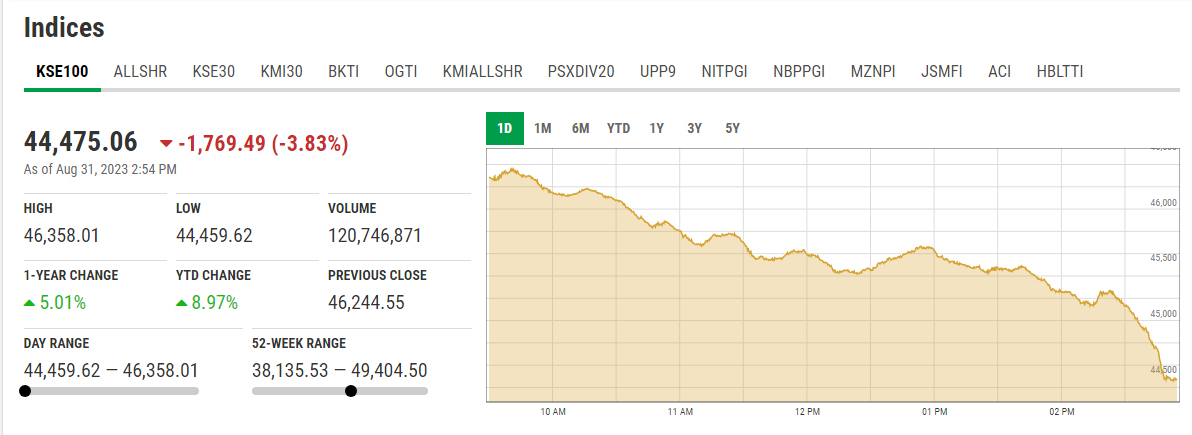KSE-100 nosedives over 1,700 points as economic turmoil dents investors’ confidence

- PSX’s benchark index continues to fall.
- Investors jittery over decline in rupee value.
- PKR trades at 306.05 against USD in interbank.
KARACHI: Bears maintained a firm grip on the Pakistan Stock Exchange (PSX) on Thursday as the benchmark index tanked nearly 4% amid fears over the worsening economic condition of the country.
Investors reacted with panic to the rising rupee-dollar parity, opting to offload shares on fears of a looming economic turmoil.
The KSE-100 index plummeted from the moment trading began and dived more than 1,700 points to fall below the 45,000 mark. Weak investor sentiment is restricting the index from entering positive territory.
The PSX was at 44,475.06 after falling 1,769.49 points or 3.83% at 02:54pm compared to Wednesday’s close of 46,244.55 points.

Speaking to Geo.tv, Intermarket Securities’ Head of Equity Raza Jafri said that the KSE-100 is facing severe selling pressure as there is a lack of confidence emanating from the weak economy.
“In particular, investors are taking their cues from the depreciating rupee especially as the next review of the International Monetary Fund (IMF) is not due for a few months and there is a little concrete colour on planned investment from the GCC. Value buyers may return if the dip extends as the index is down 8% from its recent high but meaningful valuation rerating needs clarity on politics and the economy return.”
Echoing the sentiments, Capital market expert Saad Ali stated that PSX remains under pressure as the incessant rupee slide has worsened the outlook for inflation ahead of the next MPC in September, in which the central bank can resume raising interest rates.
Ali noted that the financial market is also nervous about the public protests over power tariff hikes and if the interim govt resorts to populist measures to appease the public, it will jeopardise talks with the IMF.
“On a positive note, today MSCI rebalancing is underway, due to which Pakistan is likely to see foreign inflows. But it is not enough to improve market sentiment.”